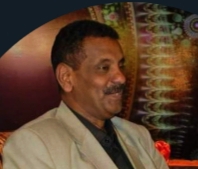Opinion
Sudan Will Not Starve: Facts and Statistics

By: Al-Tayyib Gassim Al-Sayed
In a previous article, I emphasized the need for early preparation and organization for another battle of dignity parallel to the ongoing military battle. This fight for dignity is being waged in regions impacted by the betrayal of the Janjaweed, their collaborators, and financiers. I asserted that this parallel battle is inevitable, alongside the fierce battle for pride and honor that has been raging for nearly two years. This confrontation will persist until Al-Geneina is liberated and cleansed from the rebellion’s stain, backed both regionally and internationally, as assured by the nation’s leader and Commander-in-Chief of the Armed Forces, General Abdel Fattah Al-Burhan.
To prevent the aftermath of decisive victory—by God’s will and the determination of Sudan’s military and allies—from being marred by fabricated claims of famine as touted by those conspiring against Sudan’s people, resources, and strategic advantages, another critical battle must begin. This parallel effort must focus on reconstruction, rebuilding, and purging traitors and collaborators from within.
I reaffirm this, dear readers, in light of an essential press conference held by Federal Minister of Agriculture Dr. Abu Bakr Omar Al-Bushra on Monday. This timely event unveiled a real battle for dignity, focusing on securing sustenance, strengthening the economy, and promoting self-reliance, productivity, and hard work. The facts and statistics presented, derived from a comprehensive scientific field survey, touched upon all aspects of production. Unfortunately, this significant event, in my opinion, did not receive the media coverage and analysis it deserved.
Key Points from the Minister’s Address
During the press conference, the minister confidently discussed Sudan’s vast agricultural potential, highlighting 175 million acres of arable land, the country’s share of Nile waters, rivers, valleys, seasonal streams, and sufficient groundwater reserves. He noted Sudan’s strategic location and its diverse climate and environmental features, enabling varied agricultural cycles and opening opportunities for regional and global integration. These advantages affirm Sudan’s potential as a golden opportunity that attracts those eyeing its resources.
The minister elaborated on the ministry’s annual practice of conducting field surveys and evaluations of past farming seasons—both summer and winter—to guide planning for upcoming seasons. He revealed that the recent summer survey was funded by the FAO (Food and Agriculture Organization), as two American organizations declined to participate, citing security concerns.
The survey results showed a manageable shortfall in sorghum and millet production, even though it did not cover Darfur and Kordofan states. The minister also discussed the ongoing winter season, focusing on wheat, a vital strategic crop. He outlined steps taken to enhance wheat production, the necessary support for farmers, and international organizations’ roles in securing fertilizers, equipment, and other resources.
Insights and Recommendations
These facts, figures, and proposals demand significant attention from the state, institutions, and society. They represent a roadmap to prevent Sudan from sliding into risks comparable to the destruction caused by the devastating war imposed on our people and armed forces. The pressing need is to prioritize reconstruction, food security, and debunking famine myths by implementing the Ministry of Agriculture’s vision, as presented by the minister.
With proper planning and dedication to these principles, we can confidently declare: Sudan will not starve.



